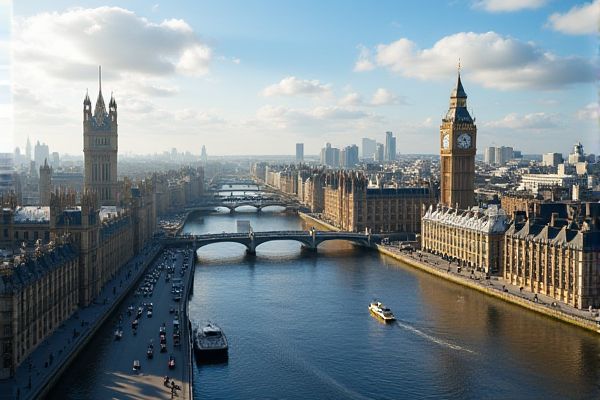
Utilities setup and providers in United Kingdom: Choose between national or regional providers. Set up accounts before moving in. Electricity: Regulated by various suppliers. Gas: Check available suppliers in area. Water: Managed regionally, no choice of provider. Broadband: Compare speed and pricing options. TV License: Mandatory for TV viewing. Council tax: Covers local amenities/services. Meter readings: Submit regularly to avoid estimates. Direct debit: Simplifies payment management.
Choose between national or regional providers.
In the UK, the utilities setup is divided between national and regional providers. For electricity, there are 14 regional energy regions, each with its own incumbent electricity supplier, while British Gas stands as the national incumbent gas supplier. Customers have the flexibility to choose between these [regional suppliers](https://www.ukpower.co.uk/regional-energy-prices/8-south-east) or national providers in order to find the best deals for their energy needs. This system allows consumers to compare various offers and opt for the one that suits their budget and consumption needs effectively.
Set up accounts before moving in.
To set up utilities before moving in the UK, begin by listing your essential utilities, then notify your current providers about your move. It's important to research and choose new providers that best meet your needs. Arrange for any necessary utility switches or setups, and remember to take meter readings at your current property before departure. Confirm the service start dates to ensure a smooth transition into your new home. For more comprehensive guidance, visit the article on How to Handle Utilities Setup Before Moving Day to help streamline the entire process.
Electricity: Regulated by various suppliers.
In the UK, electricity is regulated by the Gas and Electricity Markets Authority through Ofgem, and consumers can choose from a variety of suppliers. This includes major companies like British Gas, EDF Energy, and E.ON, as well as smaller independent providers. To learn more about utilities and consumer options in the UK, you can visit the Expatica website.
Gas: Check available suppliers in area.
To find your gas supplier in the UK, you can use the Meter Point Administration Service's online "Find My Supplier" search tool or call 0870 608 1524. By providing your postcode, you can obtain your Meter Point Reference Number (MPRN) and supplier details. This service ensures that you have the necessary information to manage your gas supply effectively and smoothly.
Water: Managed regionally, no choice of provider.
In the UK, Water Services are managed regionally, with 10 regional water authorities established by the Water Act 1973 and later privatized in 1989. Currently, water supply and sewerage services are provided by specific companies assigned to each region, with no consumer choice of provider. For more detailed information on how these systems function and the regulatory framework that governs them, you can visit the Ofwat Industry Overview website.
Broadband: Compare speed and pricing options.
The average cost of broadband in the UK is £26.90 per month, with variations depending on speed and connection type. Fibre to the premises (FTTP) connections stand as the most expensive option at £29.86 per month, while mobile broadband offers the most economical choice at £18.70 per month. There is a significant disparity in broadband speeds and prices between providers, as some areas can access gigabit-capable broadband starting from just £26 per month. For further details and comprehensive insights, visit the Broadband Statistics on the USwitch website.
TV License: Mandatory for TV viewing.
In the UK, a TV Licence is mandatory for watching or recording live TV on any device, including online services like BBC iPlayer, and for watching live TV on any streaming service. It is not required for watching on-demand content from services like Netflix, Amazon Prime Video, or YouTube, unless it involves live TV or BBC programmes. For further detailed information, please visit the TV Licensing website where you can check if you need one.
Council tax: Covers local amenities/services.
Council tax in the UK funds a wide range of local services, including libraries, parks, leisure facilities, social care, refuse collection, road maintenance, and services provided by London-wide organisations such as the police, fire brigade, and transport. For detailed guidance on how your contributions are utilized, visit the What Your Council Tax Pays For section on the Islington Council website.
Meter readings: Submit regularly to avoid estimates.
To avoid estimated bills, it is crucial to submit accurate meter readings to your energy supplier regularly, either through their online portal, mobile app, or by phone, especially for standard and prepayment meters, as smart meters and interval meters automate this process. For more guidance on this process, the Energy Advice Helpline offers comprehensive support and information.
Direct debit: Simplifies payment management.
Paying for energy via Direct Debit in the UK simplifies payment management by automating monthly payments, often at a lower cost than other payment methods, and can be adjusted based on actual energy usage and seasonal variations. For more information, you can visit the comprehensive guide on Direct Debit offered by Uswitch.
